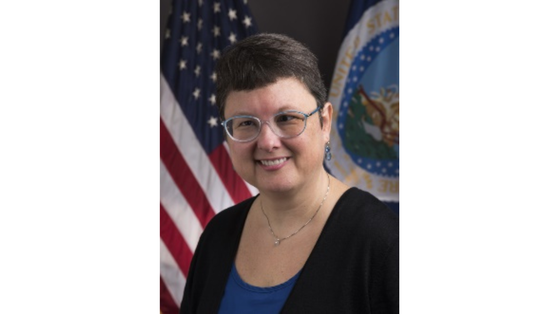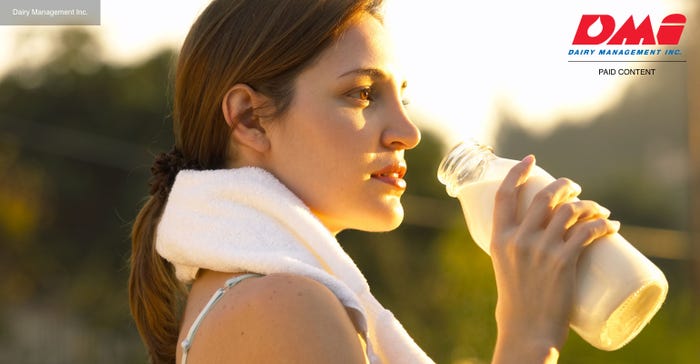New regulations enhance integrity of organic importsNew regulations enhance integrity of organic imports
Six months after going into effect, Strength of Enforcement effort gets high marks from top regulator for protecting the organic seal.
October 2, 2024

The National Organic Program’s new Strength of Enforcement (SOE) regulations, which went into effect earlier this year, have received high marks from NOP’s top regulator Dr. Jennifer Tucker for helping to protect the integrity of the USDA certified organic seal.
“I’m very pleased,” Tucker said of the first six months of activity under the new regulations, which were a long time in the making before going into effect on March 19, 2024. “Are companies mostly in compliance? They are,” she said, asking and answering the main question. “Eighty-five percent of organic entries have arrived with a valid NOP certificate that we can match back to a legitimate certifier.”

Deputy Administrator Dr. Jennifer Tucker
The new SOE regulations, aimed at imported products, first surfaced about a half dozen years ago as proposals to help protect the USDA certified organic label by industry and regulators concerned that imported organic products were not subject to the same strict standards commonplace within U.S. borders. Years of hearings and the rule-making process produced the final SOE regulations, which were published in early 2023 and went into effect in March 2024. Though there was a relatively long rollout period with lots of advance publicity and workshops to explain the regulations, NOP regulators still allowed for an informal six-month “grace period” after the March enactment.
Tucker reported that the regulations have been in effect but there were allowances offered to help everyone along the supply chain become compliant, especially those that were not trying to game the system but were still unaware of their obligations. One such stopgap measure was to allow customs brokers to use a temporary code (999) to certify that specific organic products were indeed organic even though they lacked some of the required documentation. As of Sept. 19, that code has been eliminated, and all incoming products must follow both the spirit and the letter of the law.
Tucker said the 15% not in compliance includes the products cleared through the temporary code, with very few cases of willful disregard of the new regulations having surfaced. She noted that the customs broker community is an integral part of the NOP’s strategy to enforce the regulations, and she knows that there is a significant volume of product that never makes it into the U.S. because it comes to the brokers without the required certifications, and they reject it.
She reported that many of the lack of certification issues have arisen because of communication breakdowns within specific companies, especially larger ones. It should be noted that the NOP and the SOE rules regulate all organic products, not just fresh produce. Tucker said some large companies importing organic products from all over the world have had issues relaying the new rules to some of their outlying offices. This has not specifically been noted for fresh produce.
For example, Tucker reported that some organic items coming from West Africa and including the certified organic seal were not in compliance due mostly to lack of knowledge. As such, NOP has launched a more comprehensive approach to inform international certifiers of some of the nuances of the law.
As a further example, she pointed to organic wine produced in Europe and locally certified as organic. In Europe, organic wine can contain sulfites. However, U.S. regulations do not allow for the use of sulfites in certified organic wine. While the U.S. recognizes certifications from the European Union as valid, this is an instance where such a certification does not allow for importation of that product under the U.S. NOP label.
Tucker utilized this example to explain the types of issues that were being encountered during the first six months of enforcement.
Overall, she said the new rules are working very well with the 85% compliance “being very good for regulations that are as complicated as SOE.” She revealed that as of September, about 3,600 organic certificates for imported loads are being generated each week, and about 45,000 shipments have successfully entered the United States since enforcement began in late March.
In addition, 2,000 new supply chain operations in the United States were certified as organic from January 1 through September 20. One of the major components of the SOE regulations was greatly reducing the number of handlers exempt from certification. Though there are some exceptions, NOP officials and certifiers made it clear throughout 2023 that those who are exempt are few and far between. Tucker said the 2,000 new certifications since the beginning of the year prove that the message has been delivered and acted upon.
While NOP has tread softly the first six months, Tucker indicated that it has carried a big stick when necessary. She revealed that about 1,000 information and warning letters have been sent to potential violators. The organization has also used its “cease and desist” enforcement tool. She added that the “cease and desist” step has always been part of NOP’s power, so the use of that power is ongoing and hasn’t necessarily been used simply due to violations of the new regulations.
She also noted that there are anecdotal reports of previous foreign exporters that are no longer operating in the organic space, presumably because of the new rules and enforcement efforts.
Like any new regulation, Tucker said NOP is keeping a list of issues that may need further clarification or may need to be addressed in further rule-making procedures. But she said the regulations are working as expected and she has “no regrets” about any aspect of the final rules. Moving forward, the NOP administrator is excited about the data being generated by the new certification requirements and how that can be utilized. She said there was very little data collection prior to these new regulations that categorized the level of organic imports reaching the U.S. market.
For example, in the first six months of SOE implementation, that data reveals that 40% of the organic certifications have come from countries (Canada, Japan and the European Union) in which an equivalency certification program is in effect. Mexico is not in that group as USDA is the governing body for Mexico’s organic certifications.
While Canada and Mexico are the top two exporters of organic products to the United States, Tucker said there are scores of countries vying for a share of the U.S. organic market across a long list of product categories.
Correction: A large part of this story was repeated when it was originally published. The duplicative copy was removed Oct. 14, 2024.
Read more about:
OrganicAbout the Author
You May Also Like



